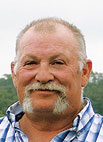
It’s no surprise that Tara and Jacob Hudson met at the University of Arkansas. They pursued the same degree in agricultural economics, worked for the same professor and attended the same church. After college, they got married and now have three children, Canaan who is 8, and daughters Hayden, 6, and Harper, 4.
Prior to moving back to Northwest Arkansas from Little Rock, Tara used her degrees in agricultural economics working in policy for the Arkansas Farm Bureau Federation where part of her responsibilities was working with farmers in agri-tourism.
Soon after moving back to Northwest Arkansas, the Hudsons purchased a 60-acre farm in Goshen, Ark., and named it Legacy Farms because they both represented the sixth generation of their families to farm in the Ozarks.
They have a small herd of Black Angus and Charolais/ Limousin cross cows. Each breed represented is part of the couple’s individual history with beef cattle. But Tara has branched the family operation even more by establishing a new, seasonal cash crop on a portion of the family’s beef cattle operation, and she had hopes that it will inspire the seventh generation of agriculturalists in her family, as well as other children.
“When I grew my first pumpkin crop, I didn’t know exactly how I was going to market them. I soon came up with the idea of a portable pumpkin patch,” Tara said.
What is the portable pumpkin patch? The portable pumpkin patch is a field-trip experience that Tara takes to schools rather than them coming to the farm. The idea was well received by schools districts from the beginning due to increasing transportation costs and the difficulty in transporting children. From that idea nine years ago, Tara now interacts with more than 3,000 Northwest Arkansas elementary and preschool students each fall. As far as they know, the Hudsons are the only portable pumpkin patch in the United States.
Tara fills a 16-foot utility trailer with 1,200 pounds of field corn, making it like a “sandbox,” while also providing other activities and a lesson on the lifecycle of a pumpkin. In her presentation, Tara exposes the students to agriculture by walking them through how a pumpkin grows from seed to harvest. The children learn how it takes sunlight, water and even bees for a pumpkin to reach maturity.
Students rotate through stations with age appropriate activities. Each student receives a small pumpkin and each classroom a larger one, all of which are grown at Legacy Farms. Other pumpkin sales come from teachers and parents who attend the activities, as well as some individuals and businesses that purchase directly from the farm.
The Hudsons raise four species of mini pumpkins, such as Tiger Stripes and Baby Boos, for the children and traditional orange jack-o’-lantern pumpkins for the classrooms. However, due to their increasing popularity, they have also begun raising heirloom species because of their broad range of colors and flatter shape. These include Pink Porcelain Doll, Green Jarrahdale and One Too Many, which looks like a bloodshot eye.
Over the years, the Hudsons have expanded their business to allow on-site sales. Tara uses Facebook and word-of-mouth to publicize and inform people of on-site sale days and hours and is considering more traditional agri-tourism activities at the farm in the future.
Jacob and Tara were both raised on farms in Northern Arkansas. They both credit their upbringings for instilling in them a strong work ethic, which they hope to pass on to their children.
“The pumpkin patch is a true family business,” Tara said. “Our kids help us work in the pumpkin patch, especially during harvest, and they have all logged many hours with me. In fact, they could teach my pumpkin lesson as well as I can.”
“Playing on the bouncy balls in the rows is the most fun,” Harper explained, while Hayden added, “I don’t do planting but I do pick the pumpkins which is hard because we have to pick them up and put them in the buckets.”
“I want to grow pumpkins of my own someday because you make a lot of money and it’s fun doing all of it. I even like the loading and unloading,” Canaan said.
When all is said and done, the Hudsons and their children hand pick more than 8,000 pumpkins each year with no hired labor and educate more than 3,000 elementary students about agriculture. A unique idea that began nine years ago has grown into an enjoyable, profitable and educational agri-tourism business.







